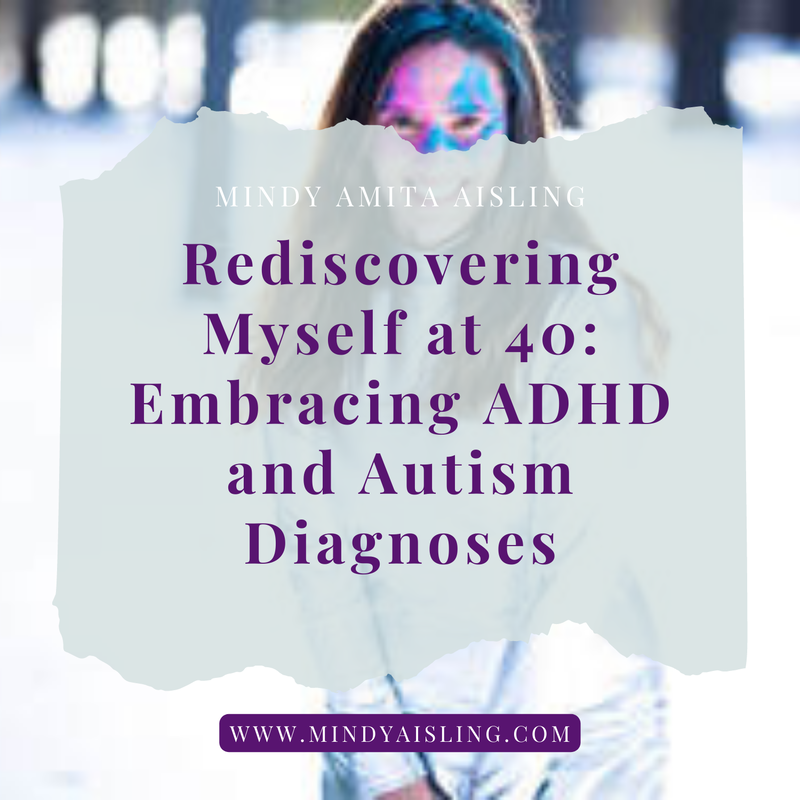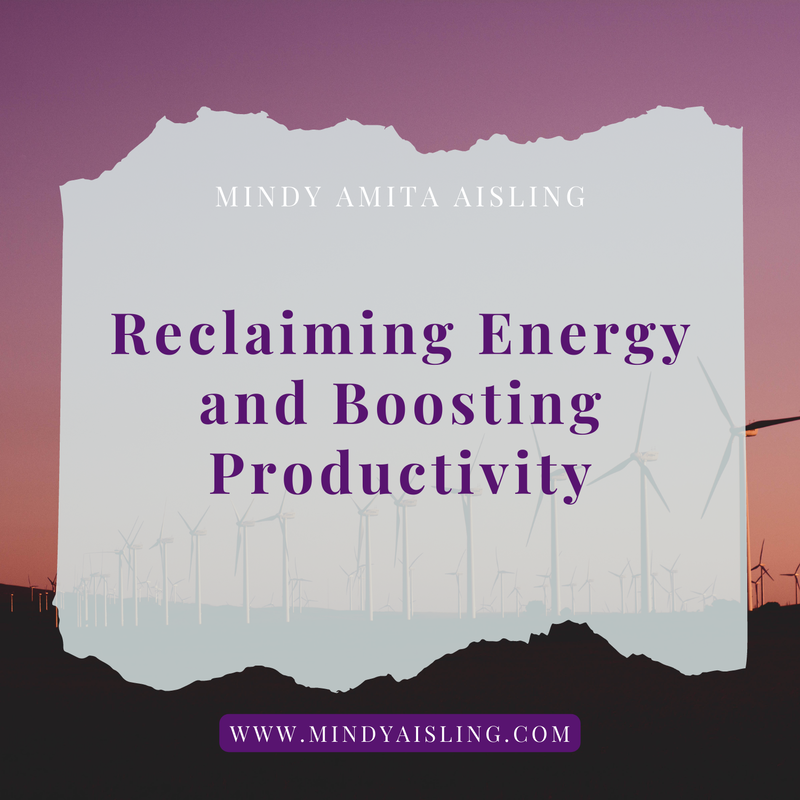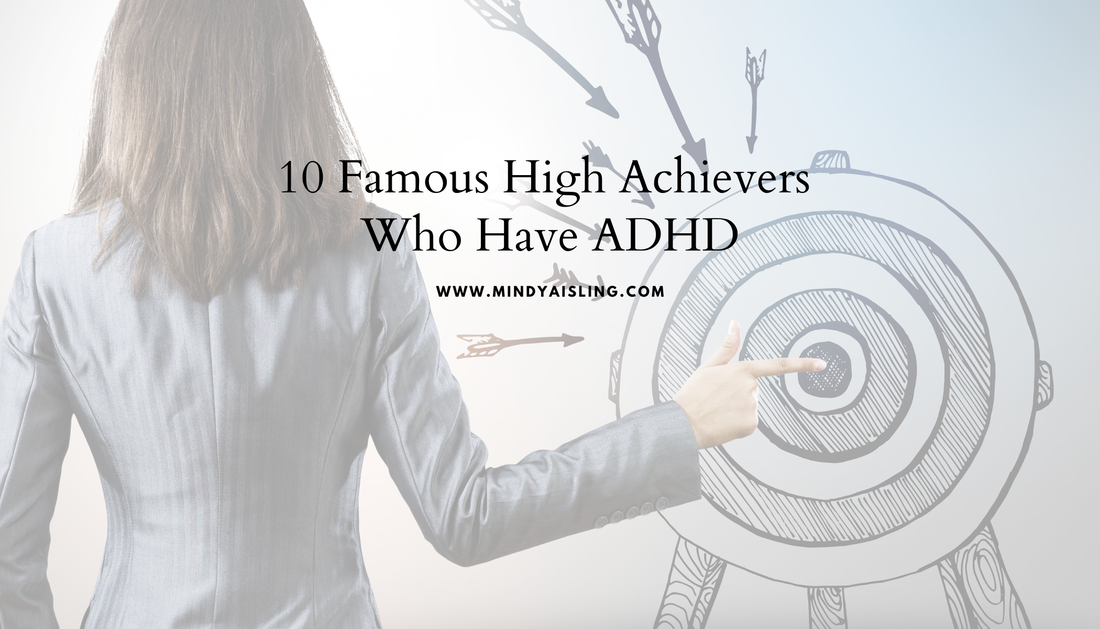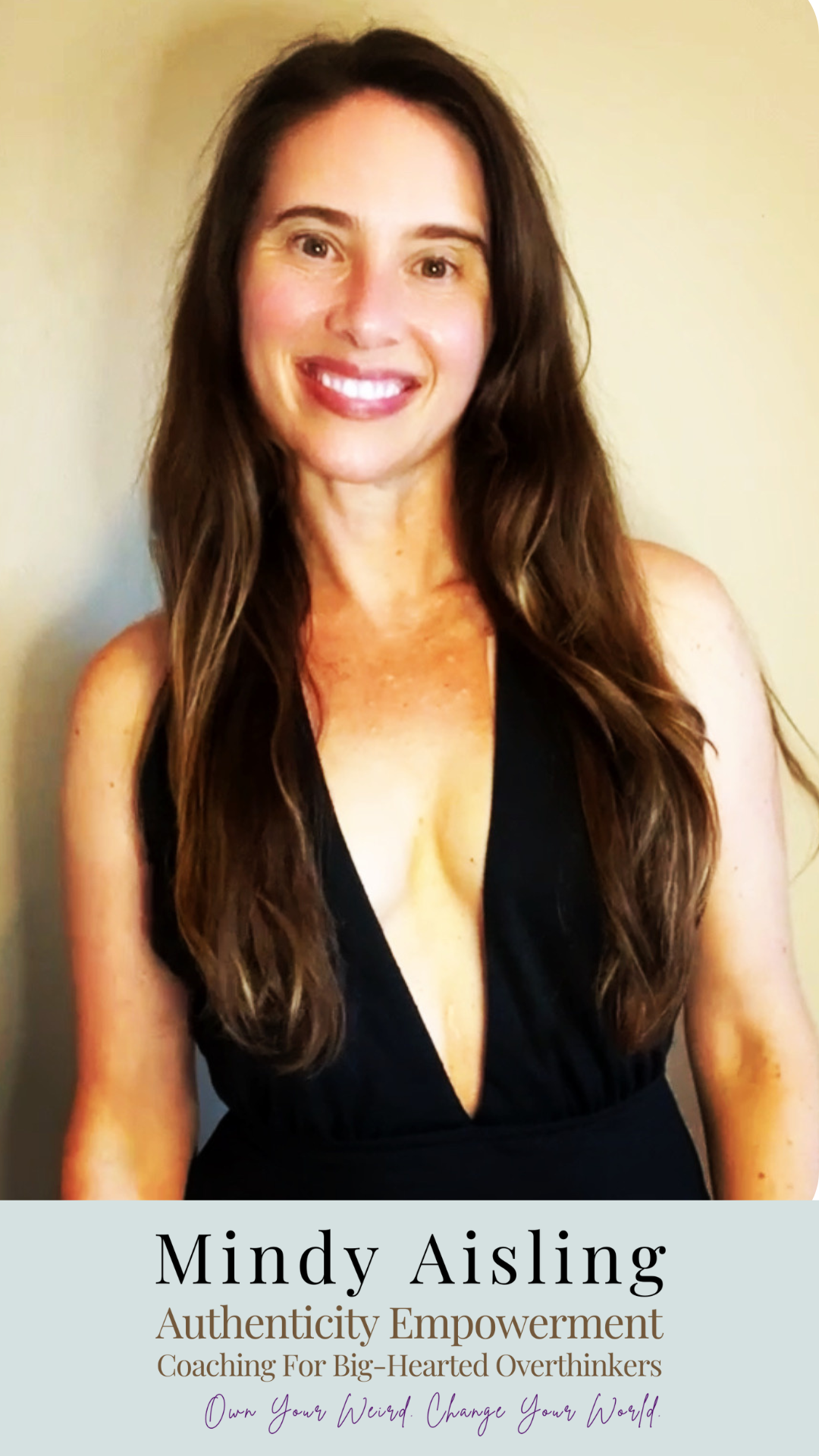|
In the ever-evolving realm of entrepreneurship, where success is often defined by the ability to stand out in the digital crowd, mastering the art of social media and marketing is nothing short of a strategic imperative. Yet, amid the plethora of best practices, expert advice, and trending tactics, there exists a powerful truth: authenticity is the linchpin of effective engagement. As an entrepreneur, navigating the labyrinth of social media can be both exhilarating and overwhelming, but fear not—I am here to share my own tried-and-true process, not as a one-size-fits-all solution, but as a canvas for you to paint your unique entrepreneurial masterpiece. In this journey, we'll explore how crafting an authentic approach to social media and marketing can not only elevate your business but also resonate with the heart of your audience. Part 1 - Know Your "Focus Zone Recipe" In the intricate dance of professional productivity, the importance of having your own unique "focus recipe" cannot be overstated. Like a skilled chef crafting a signature dish, honing in on the specific ingredients that cultivate your concentration is key to optimizing the precious hours dedicated to your work. Recognizing the nuances of your attention span, energy levels, and personal preferences creates a bespoke strategy tailored to your cognitive rhythm. This personalized focus recipe not only enhances efficiency but also fosters a sustainable approach to tackling tasks. In a world inundated with distractions, understanding and refining your own focus recipe becomes the secret sauce that transforms mere time commitment into a symphony of productivity and accomplishment.
Part 2 - Know Your Process & Use it Repetitively After I set up my "focus zone", I use my own unique process to get my content out. I have this process written down, and I use the same process every single time. In the beginning, it will take longer, but as you build your templates and use the exact same steps each time, you'll get really fast at doing it. This stuff took me an entire day when I first started, now it only takes a few hours.
What I Gained Now, with a 2.5ish hour investment, I have the following marketing: 📈 IG post 📈 IG story with a link to my article 📈 IG SEO 📈 Medium Article with link to my website and my YouTube 📈 Medium SEO for the article title, keywords, and any images I've included in the article (Alt text) 📈 YouTube video with a link to my article and my website 📈 YouTube SEO for my title and my keywords 📈 TikTok video 📈 TikTok SEO 📈 Pinterest Video with link to my article and website 📈 Pinterest SEO for the title, keywords, and alt text. 📈 FB Post 📈 FB Story with a link to my article 📈 FB SEO In two weeks when the "new article" graphic goes live: 📈 FB Post 📈 FB Story with a link to my article 📈 IG Post 📈 IG Story with a link to my article 📈 Sometimes I also the post the same content onto a Google Updates as well I try to do this 2-3 times per week, or 5-8 hours per week. Then, for my remaining social media, I schedule simple things like graphics, photos, and quotes for everyday posts with Meta. So that means every week, there are 45 - 60 "touches" from my business to the internet (by biggest marketing tool) - and not just social media. I'm also writing 3 articles per week to build trust with future clients. A Few More Tips 👉 Sometimes, I also schedule a FB post 2-3 months out with a direct link the article - utilizing the same content again for another "touch". 👉 Sometimes, I take 2-3 quotes from the article and use my Canva "quote template" to build another entire set of reels and posts on my social media channel from the same article! Articles can also be used to great graphics and just cutting and pasting the same text! I link them all back to the same original piece of content. 👉 As I expand my conversation with my public community on this topic, I'll be able to go back and add new additional links to old blogs and articles, making them even more SEO rich! 👉 You can also include (or go back and add) additional photos and graphics in your articles and blogs, and give a unique Alt Text to each, making your SEO for each article even better! Oh, and I... ⭐Alternate between articles on Medium and articles on my website blog, so that half the links are driving traffic directly to my website. ⭐Make an income from Medium: https://medium.com/creators-hub/interested-in-writing-on-medium-start-here-8b8191cb6618 The best part of having a process that is unique to me is that is allows all of my creations to be in-the-flow and aligned with my authentic messaging. Today, it has been fun and rewarding to follow the initial feelings of struggle that I had this morning with my own ADHD brain into a series of marketing tools. Go with the flow rather than against the flow! Follow what is happening for you in your world of living and learning - there is tons of good, juicy content there. In the dynamic landscape of business, crafting a comprehensive marketing strategy is akin to weaving a strategic web that goes beyond mere outreach – it's about cultivating meaningful connections. By utilizing a diverse array of marketing tools, you're not just casting a net; you're intricately crafting a web designed to capture the attention and interest of your ideal clients. This multifaceted approach creates a synergistic effect, ensuring that your message resonates across platforms, reaching your audience where they are most receptive. In doing so, you're not just building a clientele; you're fostering win/win relationships, where your unique value proposition aligns seamlessly with the needs of your clients. As the threads of your marketing web interlace, you're not only expanding your reach but creating a foundation for lasting and mutually beneficial connections in the ever-evolving tapestry of business. Mindy Amita Aisling
Authenticity Empowerment Coaching for Big-Hearted Overthinkers
0 Comments
Life has a funny way of unveiling its mysteries just when you think you've got it all figured out. It was in my 40s that I embarked on a journey of self-discovery that would forever change the way I saw myself and the world around me. Little did I know that the answers I had been seeking for decades would come in the form of two diagnoses: Attention-Deficit/Hyperactivity Disorder (ADHD) and Autism Spectrum Disorder (ASD).
As a child, I was often described as "quirky" or "different." I excelled in certain subjects while struggling to maintain focus in others. Social interactions felt like a complex dance that everyone else seemed to know the steps to, leaving me stumbling and feeling out of sync. I carried a sense of not fitting in, of being an observer in a world that spoke a language I struggled to fully grasp. As the years went by, I developed coping mechanisms to navigate a world that felt overwhelming. I meticulously organized my surroundings, created rigid routines, and immersed myself in solitary activities where I could hyperfocus. Yet, something still felt amiss. There was a persistent feeling that I was wearing a mask, trying to fit into a mold that wasn't quite right for me. It wasn't until my 40s that I decided to seek answers. The process of pursuing a diagnosis was both nerve-wracking and liberating. Would I be dismissed as an adult seeking attention for something I had managed to hide for so long? Or would I finally receive the validation that had eluded me all these years? The journey felt like a leap of faith, a leap that I needed to take for my own understanding. The diagnoses of ADHD and Autism were revelations that transformed my perception of self. The ADHD diagnosis explained the constant whirlwind of thoughts that had made focusing on tasks a Herculean effort. The tendency to lose track of time, the bursts of energy followed by crashes of exhaustion – they all made sense within the framework of ADHD. The Autism diagnosis was equally enlightening. Suddenly, the struggles with social cues, the intense need for predictability, and the sensory sensitivities had a name. Autism wasn't something to be feared; it was a facet of my identity that contributed to my unique way of experiencing the world. It was a reminder that I wasn't broken; I was beautifully different. With these diagnoses came a sense of relief – the relief of knowing that I wasn't alone in my struggles, that there were others who shared similar experiences. But more importantly, the diagnoses gave me permission to embrace myself fully. I began the complicated (but rewarding) journey of discovering ways in which I was masking and how I could unmask and be authentically me, quirks and all. The impact of these diagnoses rippled through every aspect of my life. I began to approach challenges with a newfound understanding of my cognitive patterns. I explored strategies tailored to my ADHD and Autism, finding ways to harness their strengths while mitigating their challenges. Instead of being sources of shame, my diagnoses became sources of empowerment. Social interactions became less daunting as I learned to communicate my needs and boundaries. I sought out communities of individuals with similar experiences, fostering connections that were rooted in empathy and shared understanding. The once-overwhelming world began to feel navigable, a landscape that I could explore at my own pace. As I reflect on this journey, I am struck by the resilience of the human spirit. The ability to adapt, learn, and grow is a testament to our capacity for self-discovery. Being diagnosed with ADHD and Autism in my 40s wasn't just a diagnosis; it was an awakening. It was an invitation to live authentically, to embrace neurodiversity, and to celebrate the beautiful mosaic of humanity in all its forms. Reclaiming Energy and Boosting Productivity: A Neurodivergent Journey Towards Self-Compassion8/25/2023 Navigating a neurotypical-oriented society can sometimes lead to a cycle of shame, self-criticism, and unrealistic expectations that drain valuable energy. The path to increased productivity and well-being for neurodivergent individuals begins with shedding the weight of shame, self-beatup, and the incessant "shoulding" that holds them back. By embracing self-compassion and authenticity, a transformative journey towards higher energy levels and heightened productivity unfolds.
Breaking Free from Shame: Shame acts as a silent energy drain, perpetuating feelings of inadequacy and unworthiness. For neurodivergent individuals, societal pressures to conform can intensify these feelings. Reclaiming energy starts with recognizing that neurodiversity is a beautiful variation, not a flaw. Acknowledge your unique strengths and the contributions you bring to the table. Replace self-shaming thoughts with self-compassion. Treat yourself as you would a dear friend. Understand that mistakes are part of growth, and your journey is valid regardless of societal norms. Embracing your authenticity fosters an environment where energy can flow freely. Cultivating Self-Compassion: Neurodivergent individuals often hold themselves to unrealistic standards, leading to perpetual self-beatup. By practicing self-compassion, you can redirect this energy towards growth and productivity. Begin with mindfulness. Observe your thoughts and feelings without judgment. When a critical thought arises, challenge it with self-kindness. Understand that everyone, neurodivergent or not, has strengths and areas for improvement. Remember, your worth isn't determined by external achievements. Celebrate small victories and progress, and acknowledge that setbacks are part of any journey. Redirect energy towards learning and growth, turning self-beatup into a catalyst for positive change. Banishing the "Shoulds": "Shoulding" on yourself involves imposing unrealistic expectations rooted in societal norms. This drains energy and stifles authenticity. Neurodivergent individuals often feel pressured to conform, leading to internal conflicts and exhaustion. Break free from the "should" trap by redefining success. Focus on what aligns with your values and strengths, not arbitrary benchmarks. Embrace a growth mindset, understanding that progress is more important than perfection. Practice saying "no" to obligations that drain energy and don't align with your true self. Prioritize activities that nurture your passions and well-being. By releasing the "shoulds," you create space for authentic pursuits and boost overall productivity. Embracing Authenticity for Renewed Energy: Reclaiming energy and boosting productivity for neurodivergent individuals revolves around authenticity and self-compassion. Embrace your neurodiversity as a source of strength, not limitation. Redirect the energy once consumed by shame, self-beatup, and "shoulding" towards meaningful growth and self-fulfillment. In the journey towards authenticity, remember that seeking support is a sign of strength. Professional counselors, mentors, and support groups can provide valuable guidance. Surround yourself with individuals who appreciate your uniqueness and contribute positively to your growth. Reclaiming energy and enhancing productivity is a lifelong journey. By cultivating self-compassion, celebrating authenticity, and banishing the energy-draining cycle, neurodivergent individuals can unleash their full potential, foster personal growth, and make a lasting impact in both their lives and the world around them. Over the past few weeks, many of my clients have requested more information on support and resources for ADHD and Autism. I've compiled a list of notes and recommendations below. If you have any questions, please don't hesitate to reach out to me ([email protected]). This is a long blog, so feel free to skip to the header of the topics that you're interested in. MedicationMedication is a tool that about 70-90% of people with ADHD benefit from. ADHD medication helps people to focus, sustain attention, reduce hyperactivity, and reduce impulsivity, but may not always help with organization, procrastination, and time management challenges. People with ADHD often find that one medication works for them better than others, even within the same class of medication. Even trying short vs. long term medication can make a big difference, so work with your doctor to find the right fit for you. Some people with ADHD find that medication doesn't work well for them at all. This happens sometimes and it does not mean that the person doesn't have ADHD. PsychotherapySome psychotherapists specialize in helping people develop and implement strategies for managing ADHD as well as help them reframe some of the negative messaging they may have received about their ADHD (for example: that they're lazy or unmotivated). In Bend, Oregon: CoachingCoaching can often be an effective tool to help break down tasks and goals into manageable, actionable steps and then hold the client accountable for the actions they want to take. Coaching can also provide the necessary structure for managing weekly tasks, and furnish an understanding listener during the times when frustration arises. (You can schedule a free consultation with me here) Behavioral Support & Strategy (ADHD)Exercise helps to reduce ADHD symptoms. It is important to distinguish between exercise for fitness and exercise for focus. Fitness usually involves a more intense period of exercise, while exercising for helping focus with ADHD can be 5 - 10 minutes of activity. It is best to work with your brain, rather than against it. This means that when you are having rouble focusing, it is better to just take a break than to force yourself to continue to try. Alternatively, if you are in a hyper-focus mode, it's okay to skip breaks as long as you plan a longer period of rest and recovery when the hyper-focus is complete. People with ADHD benefit from being able to control the level of stimulation in their environment. This could mean being able to have a quiet, distraction-free space when you need it - or noise when you need it. This might mean wearing headphones or ear plugs in certain environments - or on different occasions. Changing environments can also be really helpful. Moving from your desk to the couch or from your office to a coffee shop can have a positive impact. People with ADHD often have the experience where if something is out of sight it is out of mind. This means that they tend to do better when they place important items (like planners and pillboxes) where they will regularly see it. It is very common for people with ADHD to get interested in a lot of different hobbies. The downside of this is that it can be expensive. Often local 'buy nothing' or 'trade' groups work great for people with ADHD. People with ADHD find it useful to create a 'launch pad'. This is a place where all of your important things go before you leave the house. Keys, wallet, mail that needs to be mailed, canvas grocery bags - anything you need to complete out of the home tasks. Calendars can be hard to manage, but they can also be helpful. Calendars are most helpful when there is a place to offload the "to do" items and other things that need to get done, and when necessary transition and recovery time are scheduled into the day. For example, you might have a meeting from 10am - 11am, but might also need to schedule from 11am - 11:30am to recover and refocus. Often people with ADHD can 'gloss over' details of their day. For example, if you need to be somewhere at 10am, you need to leave the house at 9:45, which means you have to start getting ready to leave the house at 9:30 (or earlier). When you schedule all of these tiny parts of your day into your planner, you have less of a tendency to overcommit, be late, or end the day being exhausted and overwhelmed. This is especially true for someone who is gifted with both ADHD and Autism. One strategy for helping people stay on task is called "body doubling" which means having a supportive and nonjudgmental person work with you to provide you with reminders when needed. (See below for free online body doubling support) Reframing Differences (ADHD)People with ADHD often have trouble consistently using and applying strategies that involve many of the self-regulation skills they struggle with. For some people medication helps, for others, environmental changes help - the key is finding your unique recipe and then having compassion for the ebb and flow of its use. Some people with ADHD will get down on themselves for not "finishing" things, like housework or hobbies. It's important and helpful to reflect on what it means to be "finished". Often we think of being finished as having some kind of final product or mastery, but that's a very narrow definition that doesn't serve people well. It is entirely reasonable (and wise) to acknowledge that some tasks and activities are so challenging that they are not worth the effort. For example, some people with ADHD will hire housekeepers, or accept that their house will never be as tidy as the 'expected' or the 'norm'. It can be important & healthy to set limits on actives with friends and family. It can be really challenging to reframe traits associated with ADHD and Autism as not a personal failing. You are okay just the way you are, and it is even okay to struggle in accepting that statement. Websites (ADHD & Autism)
Books (ADHD & Autism)Apps (ADHD & Autism)Podcasts (ADHD & Autism)Social Media (ADHD & Autism)
Facebook Groups: MeetUp Groups (Online/Remote) Reframing Differences (Autism)Many people have stereotypes in their minds about how an Autistic person looks and behaves. They might say things like, "You don't look Autistic" or "You make eye contact so you can't be Autistic" or "Maybe you're Autistic, but it must not be that bad because you're able to work." These kinds of comments are incorrect and based on outdated ideas. Many Autistic people engage in repetitive behaviors known as "stimming." These behaviors are an important means of self-regulation and therefore shouldn't be reduced, eliminated, or altered (unless they are harmful). Many Autistic people (particularly undiagnosed/late diagnosed) channeled this into nail biting, cheek biting, fidgeting, or holding their hands in fists. Consistent routines and repetitiveness in general help to establish a level of predictability in a social world that feels very unpredictable. Such routines also shouldn't be reduced, eliminated are altered (unless they are harmful). Autistic people tend to have more focused and intense interests than neurotypical people. Research suggests that engaging in these interests is positively associated with wellbeing and helps Autistic people develop emotional awareness, social skills, and coping skills. Accordingly, they are encouraged to pursue these interests, even if other people find them "too intense". There is nothing wrong with needing support for tasks that other people can do without support. Our culture is highly individualistic, but other cultures highly value interdependence and relying on each other. What level of help is "socially acceptable" is highly arbitrary and varies based on cultural standards. Managing the Sensory EnvironmentAutistic people have a harder time filtering out distracting sensory information. Accordingly, they often benefit from tools like noise-canceling headphones, ear plugs, and other devices to help the regulate their sensory experience. For example, playing loud music through headphones while grocery shopping to help drown out some of the other overwhelming sounds might be beneficial. Other tools that may be helpful are weighted blanket, weighted clothes or sensory toys. Because the sensory environment is so important, it is important to be thoughtful about your physical space. The may mean keeping sensory and self-care tools nearby, reducing clutter, dimming lights, using rugs or insulation to reduce noice, and having help keeping the space that way. It is perfectly reasonable to be thoughtful and discerning about clothing. There is nothing wrong with dressing in a way that allows you to be comfortable. Reducing the decision around clothing can also be very helpful. For example, if you find clothes that feel comfortable, purchasing multiples of those clothes and wearing them constantly is totally reasonable. Social Engagement (Autism)One thing Autistic people are taught by society is that they should endure discomfort for the comfort of others. For example, they should make eye contact even though it makes them uncomfortable. This makes it mush more challenging for Autistic people to know when they're feeling discomfort (as they have been taught to ignore and discard it) and set boundaries that they are actually comfortable with. Learning to monitor discomfort, set boundaries and conceive their own boundaries as acceptable is an import goal for Autistic people. Many Autistic people benefit from preparing for new situations by researching them ahead of time and getting a very explicit and clear understanding of expectations. For example, if you're going to a new restaurant, it is often helpful to look at the restaurant's website, seeing how the outside of the building looks on Google Street View, reviewing the menu, and knowing ahead of time where the bathrooms are. Autistic people often need more scripting and pre-planning for social events than neurotypical people. This means that they benefit form more time to prepare for events, which is a normal and reasonable thing. Autistic people tend to do better with digital communication than real time communication as this allows them to take the time they need to process information. I hope this was helpful. If you have questions, thoughts, or things to add to this blog, post a comment below or email me ([email protected]) Individuals with ADHD have a unique way of looking at the world, and this can lead them to contribute greatly to the world around them. Here are 10 high-achievers who have ADHD:
Want to discover even more about famous people with ADHD, check out the following articles:
Famous People with ADHD via ADDitude 76 Famous & Successful People with ADHD via Mental Up |
AuthorMindy Amita AislingAuthenticity EmpowermentLife Coaching for Big-Hearted Overthinkers & Entreprenerds🐲Own Your Weird
🌎 Change Your World ⬇️ DIY Courses 👩🏻💻1:1 RemoteCoaching Fully Accredited ICF Certified Mindy Amita Aisling, is a professionally trained and board-certified leadership, authenticity, and entrepreneur coach.
Mindy exceeds all requirements set forth by the International Coaching Federation (ICF) for Master Coach certification. Mindy is also a licensed mediator, communications coach, and conflict resolution practicer. As a mediator, she has worked both in private practice and as a court appointment mediator at her local county courthouse. Through her innovative approach, she assists clients in examining their limiting beliefs, questioning their assumptions about how the world works, and releasing the notion that they are anything less than perfect. As a result, individuals who work with Mindy cultivate the ability to stand firm in their beliefs, live authentically and decisively, and discover an experience of life that is easy and graceful. In 2021, Mindy founded How to Be Human and Entreprenerd. These programs have enabled her to share her wisdom and knowledge with a broader audience in service of her vision of helping others live authentic lives This, in turn, has empowered more individuals to lead their most TRUE and COURAGEOUS lives. When she is not working, Mindy can be found playing outdoors in the beautiful Pacific Northwest, creating art, spending time with friends & family, or with her nose deep in a book. You can sign up for her newsletter here. Archives
June 2024
Categories
All
ICF Certified Life CoachAffordable Online Life Coaching |







 RSS Feed
RSS Feed
